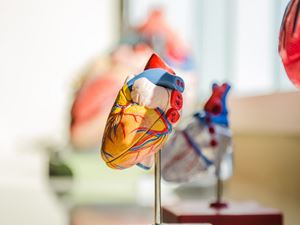
The world is in desperate need of organ donors. There are nearly 115,000 people in the United States alone who are waiting for a lifesaving organ transplant, and a new name is added to that waiting list roughly every 10 minutes. Despite that, less than half of American adults are registered to become organ donors after their deaths. Every organ donor has the potential to save eight lives. Still, there are a large number of people who are hesitant to become organ donors.
Most people who are not organ donors actually would not mind being an organ donor, but they never bother to change their status. Contrary to popular belief, changing from non-donor to a donor is not difficult. For Americans, it can be as easy as checking a different box when renewing a driver’s license. Instead of marking the square saying that they are unwilling to be an organ donor, they simply have to check the box that says they would like to be an organ donor. It takes less than 10 seconds to make the switch. Still, many people simply do not think about altering the information on their driver’s license when they renew it. For that reason, there are numerous websites that enable people to sign up to become organ donors, including OrganDonor.gov, United Network of Organ Sharing and even the DMV online portal. Registering takes less than five minutes, but some people are still skeptical about agreeing to give away their organs after they die.
One reason many people are commonly nervous about agreeing to become an organ donor is that they are worried their faith forbids them from doing so. This is certainly a legitimate concern. Certain religions and religious denominations preclude people from donating their organs. In those faiths, the body is meant to be left intact after death lest the removal of organs impede the soul’s ability to reach the afterlife or rebirth. Many faiths, however, take the exact opposite approach. These religions and denominations feel that organ donation after death is a person’s final act of charity. Living donation, meanwhile, is seen as the ultimate gift to another human being. So, where does Christianity stand on the issue of organ donation?
Christianity is not a monolith. Though all Christians share the same underlying beliefs, there are an enormous number of variations on the underlying doctrine. As such, one denomination may approve of organ donation, while another may not. Overall, Christianity is overwhelmingly accepting or even encouraging of organ donation, but each denomination has a slightly different view on the matter.
Roman Catholicism
The world’s largest Christian denomination considers organ and tissue donation to be a “testimony of love for our neighbor.” Numerous Catholic officials have stated that organ donation is to be encouraged among Christians. Pope Francis has stated that “organ donation through generosity must be encouraged…Donating organs is a gesture of love. Each of us, for example, has two kidneys, and giving one of them [away]…is a beautiful gesture.” Peter Smith, the Archbishop of Southwark, echoed Pope Francis’ statement and said, “The Catholic Church is clear that, in itself it is a good and meritorious thing to freely donate our organs after we are dead. Even while we are alive, actions such as giving blood can be a powerful expression of human solidarity and of Christian charity. Such actions can help build a culture of life, a culture in which life is cherished. For this reason I welcome initiatives such as ‘fleshandblood’ which encourages people to think of serving others in this way, as a form of Christian charity.”Episcopalian and Lutheran
The 70th General Convention of the Episcopal Church released a statement that urged “all members of this Church to consider seriously the opportunity to donate organs after death that others may live, and that such decision be clearly stated to family, friends, church and attorney.” Similarly, the Lutheran Church passed a resolution in 1984 stating that organ donation was “an expression of sacrificial love for a neighbor in need” and urged “members to consider donating and to make any necessary family legal arrangements, including the use of a signed donor card.”Mennonites, Pentecostals and Mormons
Though the three denominations are wildly different, Mennonites, Pentecostal Christians and Mormons all share a similar perspective on organ donation. The denominations do not have any sort of doctrinal rule prohibiting donation, but they do not actively encourage it either. Instead, they feel that the decision to donate one’s organs or tissue is a personal one that should be made by each individual after prayer, contemplation and a medical evaluation. In the event of a person having left no clear instructions before their death, the decision should be made the person’s family.Christian Scientists
Christian scientists are known for preferring to rely on spiritual means of healing rather than modern medicine. As such, many people would expect Christian Scientists to be opposed to organ donation. The denomination, however, does not have a single specific rule about organ donation. Instead, they feel that the decision should be made by each church member or each member’s family.Jehovah’s Witnesses
Like Christian Scientists, most people would expect to hear that Jehovah’s Witnesses are opposed to organ donation. Jehovah’s Witnesses, however, are not opposed to organ donation. While they still eschew blood transfusions, they feel that the decision to become an organ donor should be left to individual members as there is nothing in the Bible that specifically comments on organ donation.Organ donors are desperately needed, and there are no theological obstacles preventing Christians from becoming donors. Christians are encouraged to love selflessly, and there are few ways that one can show that sort of love better than ensuring that they will leave one final gift for the world after death. One of the only gifts that is greater is living donation. Christ Himself gave up His body to save sinners. What better way to emulate that sacrifice than being willing to give up one’s own body to save another?

